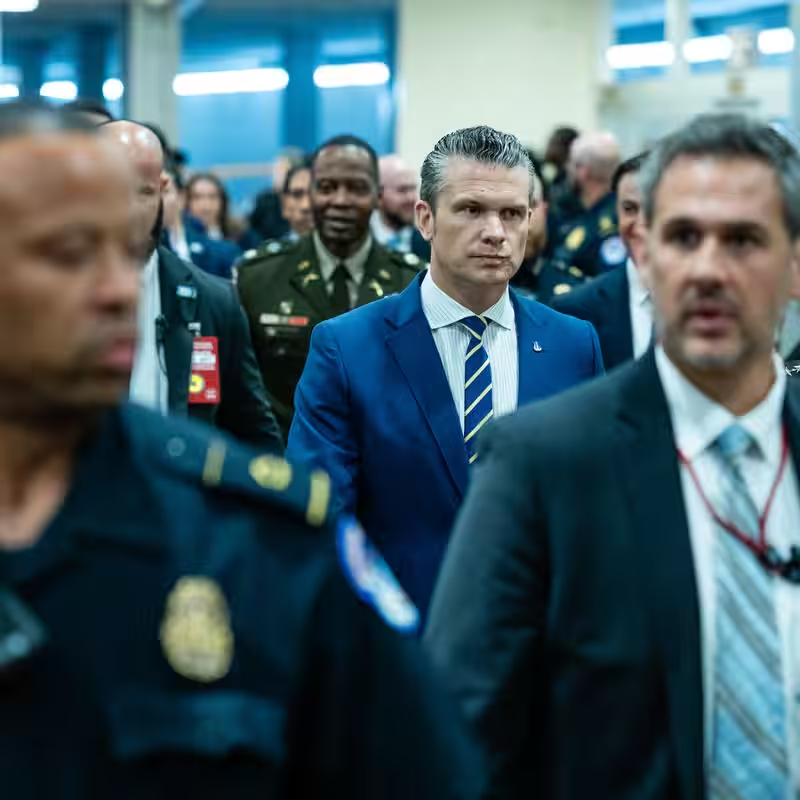In a move that has alarmed veteran journalists and First Amendment advocates alike, Defense Secretary Pete Hegseth has launched an unprecedented campaign to restrict press access at the Pentagon—marking what former officials describe as the most adversarial relationship between the U.S. military and the news media in modern history .
Why the Pentagon Press Access Battle Matters
For decades, reporters from major news organizations have operated inside the Pentagon with relative freedom—roaming hallways, interviewing officials, and uncovering stories about defense policy, troop movements, and national security. But under Hegseth’s leadership, that open-door tradition is rapidly closing.
“I don’t remember any secretary of defense — and I’ve worked for a number of them — saying, ‘OK, put a shackle on them,’” said Raymond DuBois, a former senior Pentagon official .
Key Changes Under Hegseth’s Media Policy
Since taking office, Hegseth and his team have implemented a series of escalating restrictions:
- Workspace reassignments: National outlets like NBC News were removed from shared media offices and replaced with conservative-leaning outlets.
- Restricted movement: Journalists can no longer freely walk Pentagon corridors without an official escort.
- Credential revocation rules: A new 17-page policy outlines grounds for pulling press passes—raising fears of punishment for critical reporting.
- Targeted tensions: Hegseth reportedly tried to ban NBC’s Courtney Kube after her reporting on his past, though Pentagon lawyers blocked the move.
Timeline of Hegseth’s Media Restrictions
| Date | Action Taken |
|---|---|
| Early 2025 | Hegseth reportedly orders NBC’s Courtney Kube barred from Pentagon (not enforced) |
| Spring 2025 | Media workspace rotation begins; NBC, CNN, and others lose dedicated offices |
| May 2025 | Journalists lose roaming privileges; must be escorted to interview officials |
| September 2025 | 17-page press credential policy released, sparking backlash from media lawyers |
| October 2025 | Revised policy issued—but core restrictions remain intact |
From Fox News Host to Press Gatekeeper
Hegseth’s shift from media personality to media regulator is especially striking. As a Fox News host, he frequently railed against “mainstream media” and once called both Democrats and journalists “agents of Russia” . Now, as defense secretary, he’s acting on those beliefs.
His spokesperson, Sean Parnell, defended the changes, stating Hegseth “takes his message directly to the troops and the American people” and “doesn’t rely on the corrupt filter of the mainstream media” .
Yet critics argue this isn’t about bypassing bias—it’s about controlling the narrative. Veteran Pentagon correspondent Jennifer Griffin, also a Fox News journalist, has been publicly criticized by Hegseth despite her decades of nonpartisan defense reporting. At a June briefing, he called her “the one who misrepresents the most intentionally”—a claim Fox News strongly disputed .
What Journalists Are Saying
“Basically, you have to have somebody willing to come to our part of the building, get you, and bring you back,” said Nancy Youssef of The Atlantic, describing the new escort requirement . “So it’s a big ask.”
The Pentagon Press Association condemned the policy, warning it “fails to honor the American families who have entrusted their sons and daughters to serve” and undermines transparency for taxpayers funding a $800 billion defense budget.
Legal and Historical Context
This isn’t the first time a Trump-aligned official has clashed with the press. During Trump’s first term, CNN’s Jim Acosta and Playboy’s Brian Karem had their White House credentials revoked—only to win them back in court . Those cases established that journalists must be given due process before losing access.
Notably, Hegseth’s attempt to single out Kube lacked such process—raising legal red flags. “Due process did not figure into Mr. Hegseth’s request,” according to insiders .
The Bottom Line
Pentagon press access is more than a logistical issue—it’s a cornerstone of democratic accountability. As Hegseth tightens the reins, the question isn’t just whether reporters can do their jobs, but whether the public will still get unfiltered truth about U.S. military operations.




